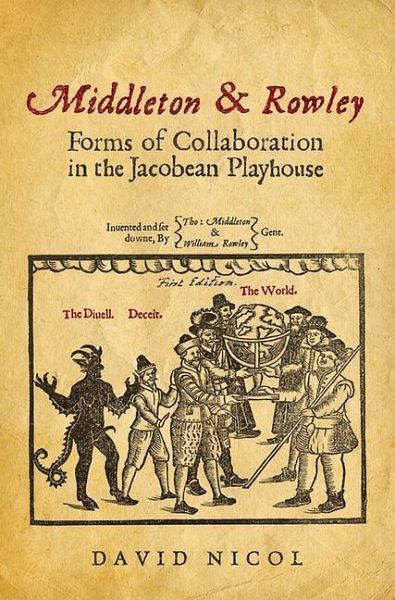Nicht lieferbar

Middleton & Rowley
Forms of Collaboration in the Jacobean Playhouse
Versandkostenfrei!
Nicht lieferbar
Can the inadvertent clashes between collaborators produce more powerful effects than their concordances? For Thomas Middleton and William Rowley, the playwriting team best known for their tragedy The Changeling, disagreements and friction proved quite beneficial for their work. This first full-length study of Middleton and Rowley uses their plays to propose a new model for the study of collaborative authorship in early modern English drama. David Nicol highlights the diverse forms of collaborative relationships that factor into a play’s meaning, including playwrights, actors, companies, play...
Can the inadvertent clashes between collaborators produce more powerful effects than their concordances? For Thomas Middleton and William Rowley, the playwriting team best known for their tragedy The Changeling, disagreements and friction proved quite beneficial for their work. This first full-length study of Middleton and Rowley uses their plays to propose a new model for the study of collaborative authorship in early modern English drama. David Nicol highlights the diverse forms of collaborative relationships that factor into a play’s meaning, including playwrights, actors, companies, playhouses, and patrons. This kaleidoscopic approach, which views the plays from all these perspectives, throws new light on the Middleton-Rowley oeuvre and on early modern dramatic collaboration as a whole.



